Story of FC College University, Lahore
The Upscale Urbane College in Lahore
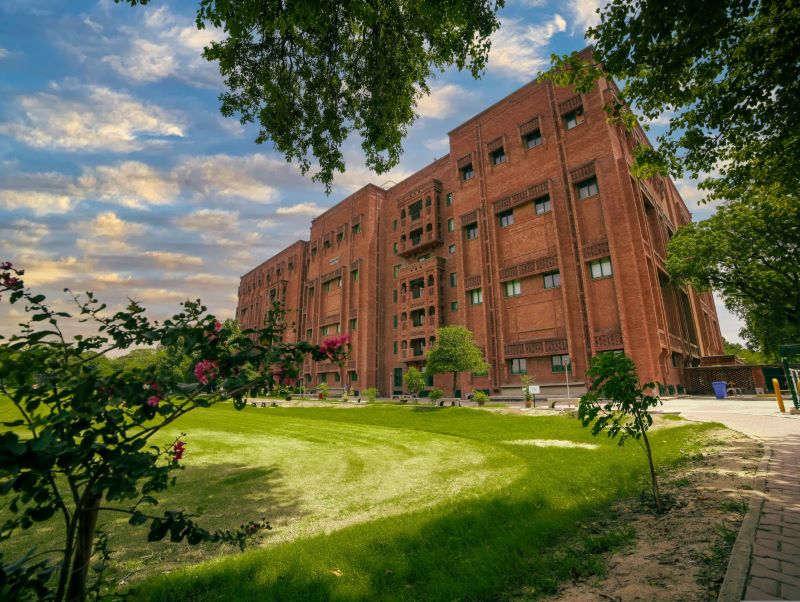 FC College University Artistic Building Elevation
FC College University Artistic Building ElevationFC College University is one of the oldest upscale colleges and universities in Lahore, Pakistan.
'FC' stands for Forman Christian College University.
It is one of those heritage institutions that has produced many notable alumni, survived several historic events, and continues to reinvent itself for modern times.
How FC College University in Lahore Began
Lahore in the mid-19th century was emerging as a key educational hub in British India.
Amidst this wave, an American Presbyterian missionary, Dr. Charles William Forman, arrived in 1849 with a passion for education.
In 1864, he founded what was initially called the Mission College in Lahore.
That year—1864—is typically recognized as the founding year of what later became Forman Christian College.
The name “Forman Christian College” came a little later.
After Dr. Forman’s death in 1894, the institution was renamed to honor his legacy.
Over time, “Forman Christian College” became synonymous with rigorous academics, a liberal arts edge, and a multicultural campus community.
Affiliation and early academic framework
In its early decades, the FC college operated under affiliations common at the time—first with the University of Calcutta (before the University of the Punjab was established in 1882), and later with the University of the Punjab.
It developed a strong academic profile in the arts, humanities, and natural sciences, producing graduates who went on to serve in public administration, education, journalism, commerce, and law.
From Old Lahore to the Current Campus
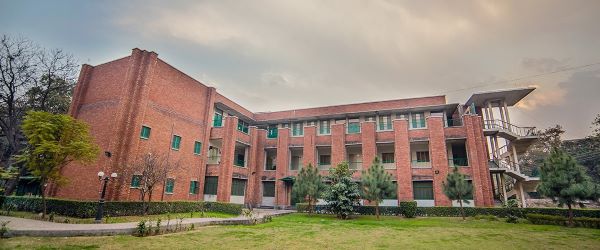 FC College University Side Elevation
FC College University Side ElevationThe FC College University campus you see today is a lush green expansive spread in the heart of Gulberg, Lahore, with generous lawns and iconic red-brick buildings.
It actually moved its campus from the original premises in the old city into what is now a sprawling, tree-lined campus took place in the early to mid-20th century as the college grew.
Today, it spans well over 100 acres.
Architectural Character
- Indo-Gothic and colonial-era influences: You’ll notice red-brick facades, high arches, and deep verandas, taking into account the climate-friendly colonial-era features adapted to the subcontinent’s heat.
- Heritage blocks and newer structures: The campus blends older blocks (many now carefully preserved and renovated) with newer academic buildings designed for modern labs, studios, and tech-enabled classrooms.
- The Ewing Memorial Library is one of the most recognizable hubs on campus, named after a long-serving principal and reflecting Forman’s books-and-ideas-first academic culture.
- You’ll also find science facilities (like the Armacost Science Building, named after another key college leader), sports fields, an auditorium, open-air student spaces, and prayer facilities, all woven together through pedestrian-friendly lawns and shaded walkways.
The architecture at Forman Christian (FC) College University Lahore depicts its core philosophy: rooted in tradition but forward-looking, studious yet lively.
A Century and a Half of Change: Key Milestones
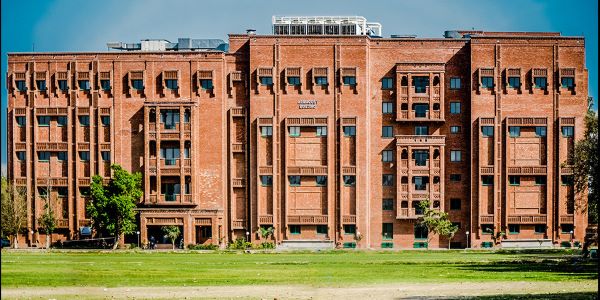 FC College University Main Building Front Elevation
FC College University Main Building Front ElevationFC College University has gone through many changes in history over a period of time:
- 1864: Founded as Mission College by Dr. Charles W. Forman.
- 1894: Renamed Forman Christian College to honor its founder.
- Late 19th to mid-20th century: Emerges as a leading college of Punjab, known for strong teaching in humanities and sciences.
- 1947: Partition transforms the region and its institutions. FCC continues in Pakistan, maintaining academic continuity through significant social and political change.
- 1972: Nationalization—many private and mission-run institutions in Pakistan were taken over by the state, including FCC. This era saw more centralized management and changes in academic structure.
- 2003–2004: A turning point—Forman Christian College is returned to its original management (Presbyterian Church [USA]) and granted “chartered university” status. This shift is crucial. It marks a modernization of governance, restoration of its liberal arts identity, and the launch of a US-style credit-hour system for bachelor’s degrees.
- 2000s–present: The university expands programs (including graduate and postgraduate degrees), invests in labs and research capacity, develops centers like the Centre for Public Policy & Governance, and re-energizes campus life with clubs, debates, sports, and festivals.
What “Liberal Arts” Means at FC College University Lahore
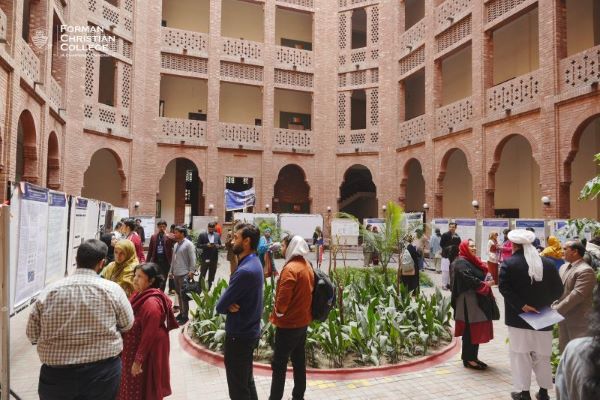
Since becoming a chartered university, FC College University has emphasized a liberal arts model: a broad-based education that encourages students to explore literature, philosophy, social sciences, natural sciences, quantitative reasoning, and writing, alongside their major.
This approach is designed to develop critical thinking, communication, and intellectual curiosity—skills that travel well across careers and sectors.
What Was Taught Earlier—and What’s Taught Now
Earlier degrees and programs (pre-charter era):
- Intermediate programs (FA/FSc/ICS): These pre-university tracks have a long history at Forman and continue today.
- BA and BSc degrees (affiliated with the University of the Punjab): Students specialized in subjects like English, Urdu, History, Philosophy, Economics, Political Science, Mathematics, Physics, Chemistry, and Biology. Coursework was more narrowly specialized than today’s credit-hour-based framework.
- Some postgraduate offerings were made over the decades in selected disciplines, but the college was primarily known as a premier undergraduate institution.
Current Offerings (post-charter, US-style credit-hour system):
- Intermediate: FA, FSc (Pre-Engineering/Pre-Medical), ICS (Computer Science), ICom (Commerce)—still popular, especially for students coming from Matric.
- Undergraduate (4-year bachelor’s degrees): BA/BS and professional degrees across:
- Business and economics: BBA, BS Accounting & Finance, BS Economics
- Computer and data: BS Computer Science, BS Software Engineering, (and increasingly, programs in data analytics or data science depending on current catalog)
- Natural sciences: BS Biotechnology, BS Chemistry, BS Physics, BS Environmental Sciences, BS Mathematics
- Social sciences: BS Political Science, BS Sociology, BS Psychology, BS International Relations
- Humanities and communications: BS English, BS History, BS Mass Communication, BS Philosophy, BS Urdu
- Education and policy: BEd (depending on the cycle), programs affiliated with the Centre for Public Policy & Governance for later graduate study
- Graduate Programs
- MBA and Executive MBA through the business school
- MPhil offerings (vary by year) in areas like Public Policy, Education, Biotechnology, Chemistry, Physics, Environmental Sciences, Economics, English, Urdu, Computer Science, and others depending on current approvals
- PhD tracks in selected disciplines (typically in the natural sciences and some social sciences/humanities) as resources and supervisory capacity permit
Note: The exact lineup evolves every few years as new programs launch and others consolidate. If you’re deciding on a degree, it’s always worth checking the latest prospectus and departmental pages.
FC College University Lahore’s Alumni: The Formanites
Forman alumni are called 'Formanites'. It spans both pre- and post-Partition South Asian history and the modern Pakistani era.
Formanites have gone into government, the civil service, law, academia, the arts, the military, journalism, entrepreneurship, banking, and development.
Who are the “main” alumni? There are many, and the authoritative lists tend to come from FCCU’s own records and alumni associations.
- FCCU’s alumni include high-ranking judges, ambassadors, cabinet ministers, provincial leaders, university vice-chancellors and professors, acclaimed journalists and editors, film and media personalities, scientists, noted lawyers, and major business leaders.
- The alumni culture is strong. Reunions, lectures, and mentorship programs are a recurring feature, and the community actively supports scholarships, endowments, and campus upgrades.
If you need a verified list, I recommend checking the official FCCU website and the Formanite Alumni Association pages. They typically maintain profiles of distinguished alumni and honorees.
Campus Life: Clubs, Sports, and Traditions
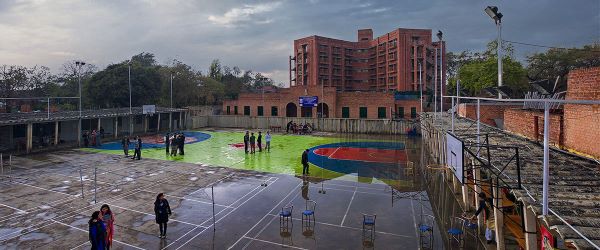 FC College University Sports Facilities
FC College University Sports FacilitiesIf you only picture classes and exams, you’ll miss half the magic.
FC College University Lahore has a vibrant co-curricular and extracurricular culture.
Some of the activities are:
- Debating and Model UN: In English and Urdu, with inter-university competitions. The debating tradition at FCCU is long-standing and respected.
- Dramatics and performing arts: Student-run dramatics club, theatre festivals, public speaking, slam poetry, and cultural evenings.
- Music and arts: Musical nights, qawwali evenings, art exhibitions, photography and film societies.
- Entrepreneurship and business: Business plan competitions, startup clubs, marketing societies, and case-cracking teams—often linked with the business school.
- STEM societies: Computer and coding clubs, mathematics societies, robotics or maker groups, and science forums that host talks, hackathons, and project showcases.
- Environmental and social impact: Green clubs focused on tree-planting, clean-ups, and sustainability challenges; social outreach through volunteer and service-learning initiatives.
- Languages and literature: English and Urdu literary societies, reading circles, and creative writing workshops.
- Sports: Cricket, football, basketball, athletics, table tennis, badminton, and more—with inter-department tournaments and university leagues.
- Student governance and leadership: Student council or representative bodies, event committees, and partnerships with campus administration on student life.
The result is a lively, collaborative campus experience where it’s quite normal to double up on a science major and theatre club—or a business degree and debate team. That blend is very much the Forman vibe.
How the University Evolved Academically and Culturally
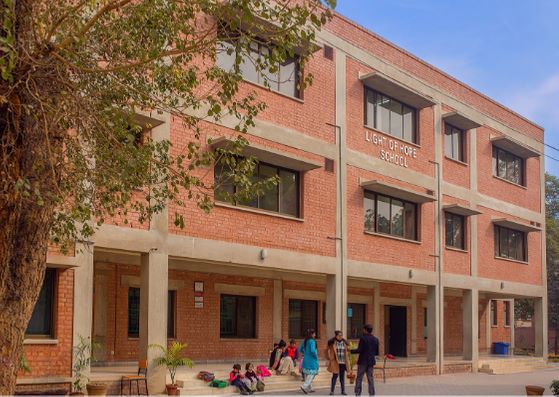
A Few Thematic Shifts are worth noting:
- From specialization to breadth: The move to a liberal arts model after charter status encouraged wider exploration through core curricula and electives beyond one’s major.
- Restoration of institutional character: De-nationalization in the early 2000s allowed the university to reintroduce governance traditions, fundraising, philanthropy, and international partnerships more freely—supporting labs, libraries, faculty development, and scholarships.
- Coeducation: FCCU is now coeducational, reflecting contemporary higher education norms and expanding opportunities for students of all backgrounds.
- Research and graduate studies: While Forman started as a powerhouse undergraduate college, the university has invested steadily in MPhil and PhD capacity, focusing on areas where faculty expertise, labs, and external collaborations can make a difference.
FC College University Lahore Today: Local and International Standing
Reputation in Pakistan:
- Within Lahore and across Pakistan, FC College University is widely regarded as a high-quality teaching university with strong undergraduate programs and growing graduate tracks.
- Employers, especially in Punjab, are generally familiar with the “Formanite” profile—solid communication, critical thinking, and a well-rounded education.
Global rankings:
- The exact standing in international rankings such as QS or Times Higher Education is fully visible at present. Not all universities participate in or are visible within those systems every year, and methodologies vary.
- In general, teaching-focused liberal arts universities in South Asia can be underrepresented in global rankings geared heavily to large-scale research output. That said, FCCU’s international partnerships, exchange programs, and alumni network do add to its profile.
If rankings matter to you, it’s best to check:
- Whether FC Collghe University is listed in the most recent QS or THE tables (global or regional).
- HEC (Pakistan) announcements. The HEC has at times paused formal rankings, so be careful to reference the current policy.
Current Fee Structure at FC College University
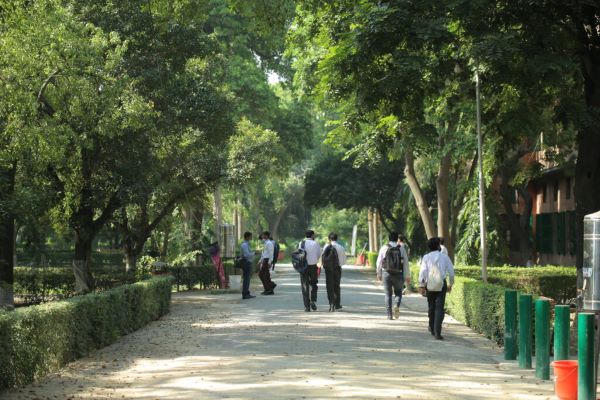 FC College University Lush Green Walkways
FC College University Lush Green WalkwaysUniversity fees change year to year based on inflation, currency changes, and program costs.
The most accurate figures are always on the official FC College University website or in the latest prospectus.
Here’s the usual fee anatomy for planning purposes:
- One-time charges: Admission fee and a refundable security deposit at the time of enrollment.
- Tuition: Charged per credit hour or as a semester package, depending on the program. Programs like BBA or lab-intensive sciences may be priced differently from humanities or social sciences.
- Registration/exam fee: Sometimes a per-semester amount.
- Lab and studio fees: For sciences, computing, engineering-style labs, or design/practical work.
- Library and student services: Often bundled into a semester fee.
- Hostel and dining: If you plan to live on campus, expect separate room and meal plan charges.
- Transport: Optional, based on routes and availability.
- Financial aid and scholarships: Need-based and merit-based scholarships are a big part of the Forman story, often supported by alumni endowments and donors.
Current fee structure: Please verify on the official FC College University admissions or finance pages for the latest semester-wise or per-credit-hour charges.
Admissions, Scholarships, and Support at FC College University
Admissions
- FC College University typically evaluates applicants on prior academic performance (Matric/O-Level, Intermediate/A-Level/equivalent), sometimes with departmental tests or interviews for selective programs.
- International students and those with non-local qualifications can expect an equivalence process via IBCC or relevant authorities.
Scholarships and Aid
- FCCU historically has a strong scholarship culture. There are merit scholarships, need-based assistance, sports scholarships, and named endowments funded by donors and alumni.
- It’s worth applying early for aid and assembling all the documentation (income verification, transcripts, recommendations) to maximize your chances.
Student Support
- Academic advising, writing and tutoring centers, counseling services, and career development offices are part of the campus ecosystem.
- The Centre for Learning and Teaching supports faculty innovation, which indirectly benefits students via better pedagogy and classroom experiences.
Why Students Choose FC College University Lahore
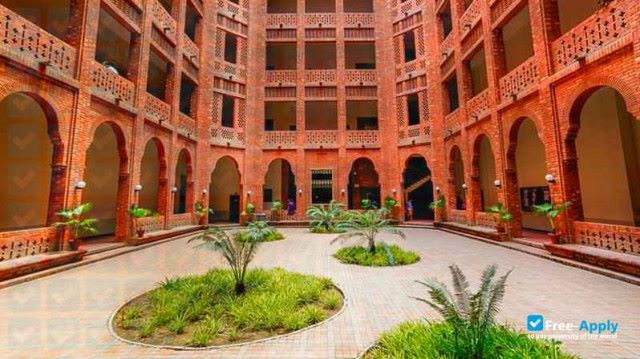
The decision behind choosing your College/University is mixed, some personal and some professional.
- A balanced education: You can major in something technical and still explore literature, ethics, or economics—or vice versa.
- A historic campus feel: If campus atmosphere matters to you, Forman delivers—space to think, walk, play, and create.
- A robust co-curricular scene: The clubs and societies aren’t just resume fillers; they’re communities where students develop confidence and leadership.
- Strong communication and critical thinking: Employers often remark on the “soft skills” of Formanites
—clear writing, persuasive speaking, and teamwork, which are built intentionally into the curriculum and culture.
Tips for Prospective Students - The Personal Perspective
- Visit the campus: If you’re in Lahore, take a guided tour. Stand in the library. Sit under a tree. It tells you quickly if it’s your kind of place.
- Read the most recent catalog: Program names can sound similar across universities; look at course descriptions, lab facilities, and faculty profiles to find a fit.
- Plan your budget with updated fees: Get the latest fee schedule and ask admissions for typical total-cost-of-degree estimates.
- Ask about placements and internships: Departments often have their own networks—find out how they connect students to opportunities.
- Explore scholarships early: Deadlines can be different from admissions dates.
A Quick Recap of FC College University Lahore
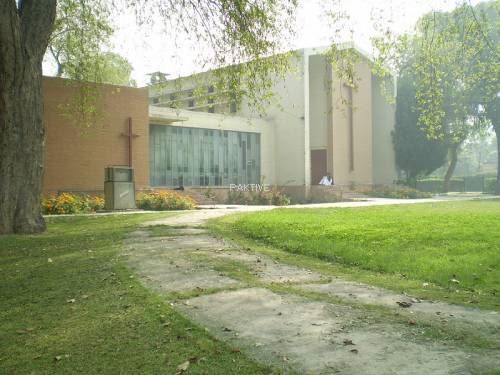
When you enter FC College University Lahore, you get a strange positive vibe that touches your core.
Though the experience may vary from person to person.
The heritage of the structure and the dense greenery and expansive grounds and pathways provide a very unique ambiance and atmosphere, which makes to stay there for long, even if you don't have classes anymore.
You may call it a bit of magic touch as well.
Today, Forman Christian College University Lahore blends tradition and modernity with liberal arts education, vibrant student life, research in selected areas, and a campus that feels both historic and alive.
FC College University Lahore is more than its historic arches and green lawns. It is an idea that a university should broaden your mind and your future at the same time.
You may read more about Forman Christian College University Lahore on Wiki

STAFF WRITER
IdeasBeat is an emerging Multimedia Publishing House that creates Short & Smart eBooks that can be read and digested easily. We hunt for diverse ideas and stories from around the world. We share easy-to-digest articles and curated content from selected sources globally.